

Discover more from The Cottage
This is the 19th Sunday After Pentecost. The Season of Creation ended on St. Francis Day (I hope some of you had your beloved animals blessed!) and the Christian calendar now slowly shifts from Ordinary Time to Advent.
Today, lectionary gives us the third in a series of parables about vineyards before turning to a quirky arc of interesting stories on wedding banquets, taxes, and a lawyer’s inquisition.
In a departure from sharing a single biblical reading (as is my custom), I’m posting two biblical texts. There’s a reason for that — you’ll find it in the musing below the picture.
Before getting to this Sunday’s reflection, however, two honest words about the just-completed series on the Season of Creation:
While we were challenging ourselves to read the biblical texts with an eye toward the climate crisis, the planet experienced the hottest September ever recorded. In the United States, our Congress is mired in a clown-show of incompetence and self-immolation while, as described by one climatologist, “the world has experienced unprecedented heat on land and sea. The temperature anomalies are enormous – far bigger than anything we have ever seen in the past.” The political follies are a literal, living example of fiddling while Rome burns. The failure — purposefully constructed by those who wish to see democracy fail — is the business of every single person who cares about old-fashioned things like the common good and human flourishing.
Public Religion Research released a survey on faith and concern for the climate revealing that, among U.S. religious groups, no single faith community exceeds one-third of its adherents viewing Earth’s current situation as a “crisis.” That’s right. We are living through the hottest year ever experienced by humankind — and only a minority of religious folks think this is a problem. There’s a theological-moral emergency right in front of us and, I’m sorry to say, Christians appear to be doing a poor job addressing it. The only Americans whose concern for the climate crisis has grown substantially in the last decade are the religiously unaffiliated.
It surprised me when, during last month’s climate reflections, I received more critical letters (and more subscription cancellations) regarding The Cottage than any other single theme or issue I’ve ever raised. And, as you know, I don’t shy away from controversial things. The denial of the issue and personal attacks directed at me from church people were heart-numbingly disappointing and disturbing.
I apologize for breaking with the typical reflective flow of Sunday Musings to add these thoughts. But both things — the political failure to make democracy work and the theological failure of American churches — should prompt spiritual examination and serious reordering of our own lives and institutions. None of this will be easy to face, much less do. We need each other to strengthen our courage and resolve — and to stop avoiding and denying what is both obvious and immediate. The future of a more democratic world and the future of a livable planet are intertwined.
Thank you for being here. For caring. And for making a space where we can encourage, exhort, inspire, and dream together.
Isaiah 5:1-7
Let me sing for my beloved
my love-song concerning his vineyard:
My beloved had a vineyard
on a very fertile hill.
He dug it and cleared it of stones,
and planted it with choice vines;
he built a watchtower in the midst of it,
and hewed out a wine vat in it;
he expected it to yield grapes,
but it yielded wild grapes.
And now, inhabitants of Jerusalem
and people of Judah,
judge between me
and my vineyard.
What more was there to do for my vineyard
that I have not done in it?
When I expected it to yield grapes,
why did it yield wild grapes?
And now I will tell you
what I will do to my vineyard.
I will remove its hedge,
and it shall be devoured;
I will break down its wall,
and it shall be trampled down.
I will make it a waste;
it shall not be pruned or hoed,
and it shall be overgrown with briers and thorns;
I will also command the clouds
that they rain no rain upon it.
For the vineyard of the Lord of hosts
is the house of Israel,
and the people of Judah
are his pleasant planting;
he expected justice,
but saw bloodshed;
righteousness,
but heard a cry!
Matthew 21:33-46
Jesus said, “Listen to another parable. There was a landowner who planted a vineyard, put a fence around it, dug a wine press in it, and built a watchtower. Then he leased it to tenants and went to another country.
When the harvest time had come, he sent his slaves to the tenants to collect his produce. But the tenants seized his slaves and beat one, killed another, and stoned another. Again he sent other slaves, more than the first; and they treated them in the same way. Finally he sent his son to them, saying, ‘They will respect my son.’
But when the tenants saw the son, they said to themselves, ‘This is the heir; come, let us kill him and get his inheritance.’ So they seized him, threw him out of the vineyard, and killed him. Now when the owner of the vineyard comes, what will he do to those tenants?” They said to him, “He will put those wretches to a miserable death, and lease the vineyard to other tenants who will give him the produce at the harvest time.”
Jesus said to them, “Have you never read in the scriptures:
‘The stone that the builders rejected
has become the cornerstone;this was the Lord’s doing,
and it is amazing in our eyes’?
Therefore I tell you, the kingdom of God will be taken away from you and given to a people that produces the fruits of the kingdom. The one who falls on this stone will be broken to pieces; and it will crush anyone on whom it falls.”
When the chief priests and the Pharisees heard his parables, they realized that he was speaking about them. They wanted to arrest him, but they feared the crowds, because they regarded him as a prophet.
Jesus is mad. And he’s angry at a very particular group of people: Those who govern, those who hold authority over others, those responsible for caring for God’s ‘vineyard.’
A few verses before he tells the story we read today, he rode into Jerusalem to people cheering him as a king, savior, and prophet. He overturned tables in the Temple. He cursed a fig tree. “The whole city,” reports the author of Matthew, “was in turmoil.”
Worried about this situation, religious leaders and lawyers ordered him to explain himself. They opened an inquisition into his motives and intentions: “By what authority are you doing these things, and who gave you this authority?” They laid theological and political traps for him, seeking to reveal him as a fraud. To restore order. To regain control. To figure out what to do with this troublemaker.
At first, he refused to answer them. But then, he told two parables to answer their questions.
This one, “The Parable of the Wicked Tenants,” is the second of those two stories.
On occasion, the curators of the lectionary get the Hebrew Bible/New Testament pairing just right. If you read Isaiah 5 along with this parable from Matthew, it seems obvious that Jesus had the Isaiah vineyard in mind when crafting his story. He paraphrases Isaiah’s first verses in a single sentence: There was a landowner who planted a vineyard, put a fence around it, dug a wine press in it, and built a watchtower.
But there’s a problem in Isaiah — and Matthew’s vineyard. In both passages, things have gone to rot in the vineyard. Who’s to blame? What has caused this? God, the vineyard owner, has done God’s part, leaving the fertile place to beloved tenants. God trusted them to do the right thing with the garden, making the inhabitants responsible for its fecundity. Instead of caring for the vineyard, however, the tenants wind up violating God’s trust. In Isaiah, God’s anger is stirred against those in charge. Matthew’s tenants turned into cheaters, thieves, and murderers — to the point of killing the vineyard owner’s son. Like the abusers in Isaiah, they have abandoned justice and righteousness for bloodshed and anguish.
Unlike the lectionary, which offers only the first seven verses of the text, Jesus surely knew the entire section of Isaiah. In the longer passage, there’s a far more detailed description of the sins of those ruining the vineyard: greed, excess, sloth, self-delusion, bribery, corruption, and abuse of the poor. Oddly enough, their chief problem seems to be that they were particularly deceitful real estate developers — which Walter Brueggemann identified as an “inequitable economic practice in which those who are prosperous, aggressive, and greedy eventually confiscate and possess the houses and fields of their more vulnerable neighbors.” Isaiah simply called them, “the nobility of Jerusalem”:
You who call evil good
and good evil,
who put darkness for light
and light for darkness,
who put bitter for sweet
and sweet for bitter!
Ah, you who are wise in your own eyes,
and shrewd in your own sight!
Ah, you who acquit the guilty for a bribe,
and deprive the innocent of their rights!
Those people. And the LORD was seriously mad at them: “Therefore the anger of the Lord was kindled against his people, and he stretched out his hand against them and struck them; the mountains quaked, and their corpses were like refuse in the streets.”
There goes the vineyard.
At first, those quizzing Jesus didn’t get it. Maybe they didn’t catch the allusion. But Jesus had taken the words of the prophet Isaiah, retold the story, and cast them in the role of the contemptuous, corrupt villains. Jesus wasn’t talking to Jews-in-general. He was comparing his inquisitors to some of the very worst people in the history of Israel — those who forgot that the land itself was a gift from God and believed themselves to be its lords.
He’s accusing one group — those complicit with the empire, those getting rich on the suffering of the poor and innocent — of displacing the vineyard owner, making their own rules, and destroying the vineyard. “Therefore I tell you,” he said to the theologians and lawyers interrogating him, “the kingdom of God will be taken away from you and given to a people that produces the fruits of the kingdom.”
They walked into his trap. And they found themselves on the wrong side of the parable, fearing the very people — those who listened to Jesus’ prophetic teachings — who had been entrusted to their leadership. Somehow, these particular leaders had gone from stewarding God’s vineyard to thinking they owned it, deserving of its largess, and could do with it whatever they pleased.
The sin was theirs. The specific injustices they wrought were of their own creation. And yet, because they are the wicked tenants, not unlike the vile real estate developers of Isaiah, their actions prove to have larger consequences on the whole of the vineyard. The innocent will suffer because of the sins of the powerful. Parable-tellers and prophets may depict it as divine retribution. That’s not, however, God’s finger-pointing vengeance. That’s just the way history works. It is part of the ecosystem of human society. If the people entrusted as stewards of the whole are unscrupulous, the entire community deteriorates. Good people can’t last long with bad governors and landlords.
Today’s texts speak of an ancient Jewish prophet, a more recent Jewish rabbi, and us. Jesus’ parable, so often interpreted as Christians displacing Jews as God’s vineyard people, isn’t about that in any way. These are stories of human folly, of shameful stewards, of the ease by which the powerful cast themselves as god.
It is a morality tale for our own time. Who are those religious and political leaders who act as if they are untouchable, entitled to commit the most bloody of injustices while ignoring the anguish of the vineyard? Who will care for the garden and tends the vines? Can the vineyard flourish again?
We’d be right to question this entire situation, and, inspired by the words of Psalm 80, cry back to God: Why have you broken down its wall, so that all who pass by pluck off its grapes? The wild boar of the forest has ravaged it, and the beasts of the field have grazed upon it. Turn now, O God of hosts, look down from heaven; behold and tend this vine; preserve what your right hand has planted.
There is much to ponder on this Sunday. And there is reason to be mad, to let the vineyard just go to rot. Yet, some of us refuse to give up. Vines must be dressed and tended, wild boar (I can think of many wild boar candidates) need to be chased away — even while we plead for some sacred assistance cleaning up the mess.
INSPIRATION
For we are thy people, and thou art our God;
We are thy children and thou our father.
We are thy servants, and thou art our master;
We are thy congregation and thou our portion.
We are thine inheritance, thou our lot;
We are thy flock, thou our shepherd.
We are thy vineyard, and thou art our keeper;
We are thy work, and thou our creator.
We are thy faithful one: thou art our beloved;
We are thy chosen: thou art the Lord our God.
We are thy subjects, thou our King;
We are thine acknowledged people, thou our acknowledged Lord.
— Anonymous, from the liturgy for Yom Kippur Eve
This is how a human being can change:
there's a worm addicted to eating
grape leaves.
Suddenly he wakes up,
call it grace, whatever, something
wakes him, and he's no longer
a worm.
He's the entire vineyard,
and the orchard too, the fruit, the trunks,
a growing wisdom and joy
that doesn't need
to devour.
— Rumi, “The Worm’s Waking” (tr. C. Banks)
…I was not separated from people,
grief and pity joined us.
We forget—I kept saying—that we are all children of the King.
For where we come from there is no division
into Yes and No, into is, was, and will be.
We were miserable, we used no more than a hundredth part
of the gift we received for our long journey.
Moments from yesterday and from centuries ago—
a sword blow, the painting of eyelashes before a mirror
of polished metal, a lethal musket shot, a caravel
staving its hull against a reef—they dwell in us,
waiting for a fulfillment.
I knew, always, that I would be a worker in the vineyard,
as are all men and women living at the same time,
whether they are aware of it or not.
— Czesław Milosz, “Łatę Ripeness” please read the entire poem at the link
SOUTHERN LIGHTS IS BACK!
January 12 -14, 2024
And our theme is Reimagining Faith Beyond Patriarchy and Hierarchy
Last January, almost 700 people gathered at St. Simon’s Island in Georgia for a packed weekend of poetry, theology, and music.
WE’RE GATHERING AGAIN!
YOU ARE INVITED to join me and Brian McLaren as we reimagine our faith beyond patriarchy and hierarchy in our interior lives, in our communities of faith, and in the Scriptures. We’ve asked three remarkable speakers to take us through this journey: Cole Arthur Riley, Simran Jeet Singh, and Elizabeth “Libbie” Schrader Polczer. Our special guest chaplain for the weekend will be the Rev. Winnie Varghese (St. Luke’s Episcopal, Atlanta).
Please come and be with us in Georgia. SEATS ARE INCREASINGLY LIMITED!
Or, if you’d rather be with us online, you can choose that option as well.
INFORMATION AND REGISTRATION CAN BE FOUND HERE.
RICHMOND, VIRGINIA! Good Virginia neighbors: I’ll be at Reveille UMC on Thursday evening, October 12 for a “Meet the Author” event. I’ll also be speaking at their women’s retreat on Saturday. Originally, the retreat portion was to be virtual. But we’ve switched it up so I’ll be there live for a short time on the morning of October 14 as well. Here’s the link with more information: https://reveilleumc.org/bass/
O God of peace, you have established Jerusalem as the Lord's House and a place of peace, and you have called on all who live there to love you and prosper. Instill in her inhabitants - Jews, Christians and Muslims - a hunger for justice and dignity and a resolve to end the distrust that culminates in violence. Grant them the wisdom and patience to build communities where Israeli and Palestinian reside in safety, free from oppression and striving for the good of all. In this endeavor, make every one of us agents of your peace, O God. Forgive us our indifference and stamp out the prejudices that lead to hatred. Fill us with the reconciling spirit of your presence. So may we join people of good will - in the Middle East and throughout the world - who raise before Jerusalem's gates their insistent Shalom and Salaam: "Peace be within your walls. . . .Peace be within you."
- The Revs. Harry and Judith Hoehler, First Parish (Unitarian-Universalist), Weston, MA
Subscribe to The Cottage
Part retreat, part think tank. A place for inspiration and ideas about culture, faith, and spirit.




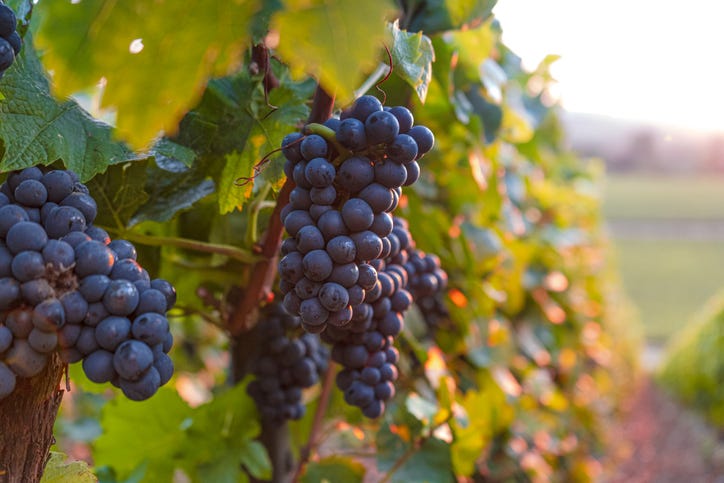
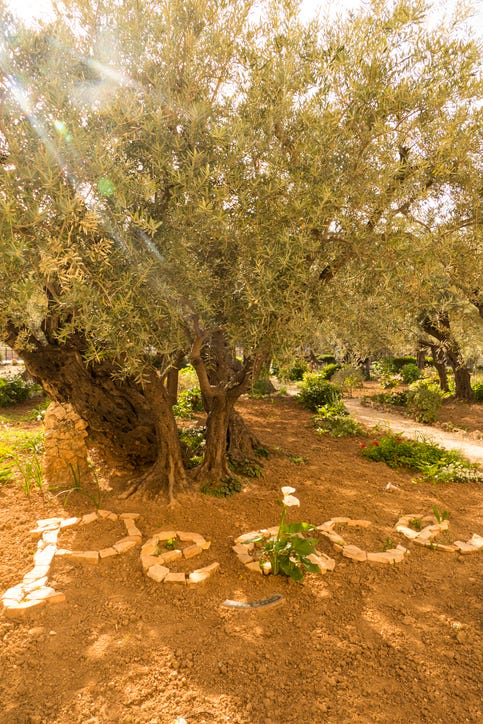





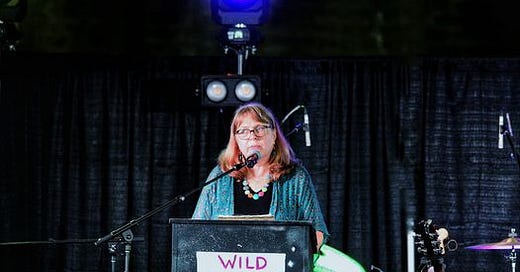

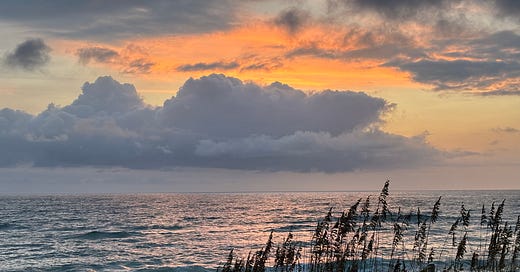

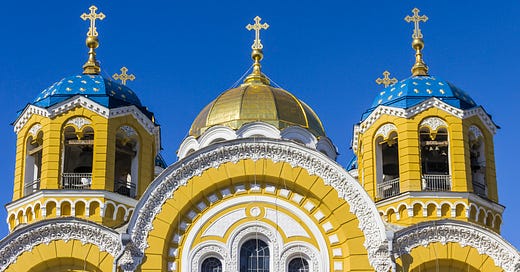

Dear Diana,
Firstly, I'd like to express my gratitude for your continuous efforts in shining a light on the pressing issues our world faces, especially in relation to the climate crisis. Saint Francis Day seems like the perfect reminder of our responsibility to protect our planet, and I appreciate your dedication to this cause.
It's deeply concerning that, even as we bear witness to unprecedented climate anomalies, our political machinery appears trapped in a quagmire of indecision and discord. The metaphor of "fiddling while Rome burns" aptly captures the gravity and urgency of the situation.
The findings from the Public Religion Research survey are indeed disheartening. As someone who has dedicated a significant portion of my life advocating for awareness and action on climate change, it's disappointing to realize the gap between the reality of our crisis and the perception of it, especially within faith communities. Yet, I believe this underlines the importance of our work even more. Theologians, environmentalists, and scientists all have a role in bridging this divide.
The feedback you received in response to your climate reflections, although discouraging, is unfortunately not surprising. Climate change has, for reasons that go beyond the scope of pure science, become a polarizing issue. However, the criticisms and personal attacks you faced remind us of the challenging road ahead. In my recent book, I've focused on the synergy of public power, national unity, and global sustainability as a path forward. Drawing inspiration from your insights and dedication, it's clear that we need to do more to unite our efforts.
In times of despair, I take solace in a particular sentiment: "Public Education + Public Power = A Sustainable Future for All Families." As we continue our advocacy, I hope we can find new and effective ways to educate and inspire the masses, uniting them towards a common goal of environmental stewardship. Let us remember that every challenge we face is an opportunity to bring about transformative change.
Sending you strength and solidarity as you continue this noble journey. We are all in this together.
Warm regards,
Jon Fogelberg
As many have written before me, I too, am truly sorry for the cancellations and ugliness directed toward you for speaking truth — and truth to power. Very sadly, while my first reaction was shock, what followed quickly was that this is really not surprising. In Richard Rohr’s email today there is a quote from a talk he gave in 1980:
“The established and dominant culture does not have authentic promises because it seeks to maintain itself. The system has materialistic and self-protecting promises for more money and a better life; it encourages us to consume more and more. It cannot offer a promise which fills and expands the heart beyond itself to the larger world.”
Established religions (yes, even the Episcopal Church) mostly don’t like change, and many congregants don’t want to be messed with nor do they want to be challenged. I preached for 3 years in an Episcopal Church and the sermon for which I received the most pushback was when I mentioned the homeless who slept in the park directly outside the windows of our church and also mentioned the church’s own food pantry. I eventually left religion altogether in part because so many sitting in the pews every Sunday didn’t want to leave the pew. Too many have forgotten that church is supposed to comfort the afflicted AND afflict the comfortable.
I also want to acknowledge the brilliance and spot-on message following the scripture passages. You knocked that one out of the park and I wish it could be published for a wider audience. Thank you, Diana, for your courage and steadfastness. Blessings to you and always stay strong and true to yourself ~